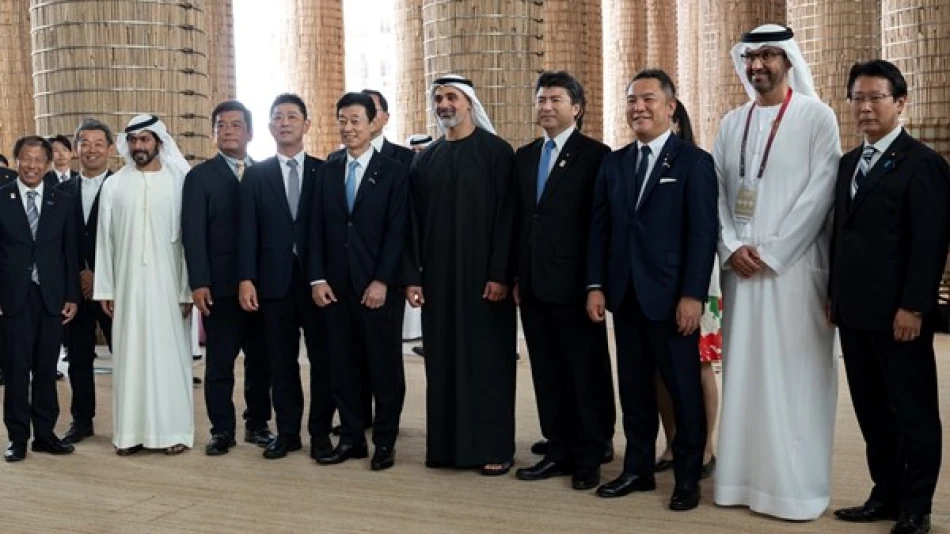
Abu Dhabi Crown Prince Meets Japanese Lawmakers, Strengthening UAE-Japan Friendship
UAE Crown Prince Strengthens Japan Ties at Expo 2025, Signaling Deeper Economic Partnership
Sheikh Khaled bin Mohamed bin Zayed Al Nahyan's high-profile meetings with Japanese parliamentarians and business leaders at Expo 2025 Osaka underscore the UAE's strategic pivot toward Asia-Pacific partnerships. The diplomatic engagement during "UAE Day" celebrations reflects Abu Dhabi's calculated approach to diversifying economic alliances beyond traditional Western markets, positioning itself as a critical bridge between East and West in an increasingly multipolar global economy.
Strategic Timing Amid Global Economic Shifts
The Crown Prince of Abu Dhabi's presence at Expo 2025 comes at a pivotal moment when both nations are recalibrating their international partnerships. Japan, facing demographic challenges and seeking energy security, views the UAE as a stable partner in the volatile Middle East. Meanwhile, the UAE continues its ambitious economic diversification agenda, moving beyond oil dependency toward technology, renewable energy, and financial services.
During the meetings with Japanese Diet members, UAE-Japan Friendship Association representatives, and corporate executives, Sheikh Khaled emphasized mutual interests across multiple sectors. This diplomatic outreach mirrors similar strategies employed by Singapore and South Korea, which have successfully leveraged expo platforms to cement long-term business relationships.
Beyond Ceremonial Diplomacy: Real Economic Stakes
Energy and Technology Convergence
The UAE's participation in Expo 2025 Osaka showcases advanced innovations alongside traditional Emirati heritage, a deliberate message to Japanese investors about the nation's technological capabilities. This positioning is particularly significant given Japan's leadership in robotics, artificial intelligence, and clean energy technologies—sectors where the UAE seeks to establish expertise.
Japanese companies have historically been cautious about Middle Eastern investments due to regional volatility. However, the UAE's stability record and business-friendly policies present a compelling case for deeper engagement, especially as Japan seeks alternatives to Chinese supply chains and energy partnerships.
Investment Flow Implications
For investors, this diplomatic engagement signals potential opportunities in infrastructure development, renewable energy projects, and financial technology. The UAE's sovereign wealth funds have increasingly looked toward Asian markets, while Japanese institutional investors seek higher yields than domestic markets provide.
The emphasis on "mutual prosperity" suggests structured partnership agreements may emerge, potentially including joint ventures in third-country markets across Africa and Southeast Asia—regions where both nations maintain significant interests.
Regional Context and Global Implications
This UAE-Japan engagement occurs against the backdrop of shifting Middle Eastern alliances and Japan's evolving security posture. Unlike the UAE's relationships with China or India, the Japan partnership carries fewer geopolitical complications, making it attractive for long-term strategic planning.
The expo platform itself demonstrates soft power diplomacy at work. Similar to how the UAE leveraged Expo 2020 Dubai to attract international partnerships, the nation's prominent participation in Osaka signals continued commitment to global economic integration despite regional tensions.
The ceremonial photograph session, while seemingly routine, symbolizes the formalization of relationships that could yield significant economic dividends. In Middle Eastern diplomatic culture, such public displays of partnership often precede substantial business announcements, suggesting more concrete developments may follow in the coming months.
Most Viewed News

 Layla Al Mansoori
Layla Al Mansoori






